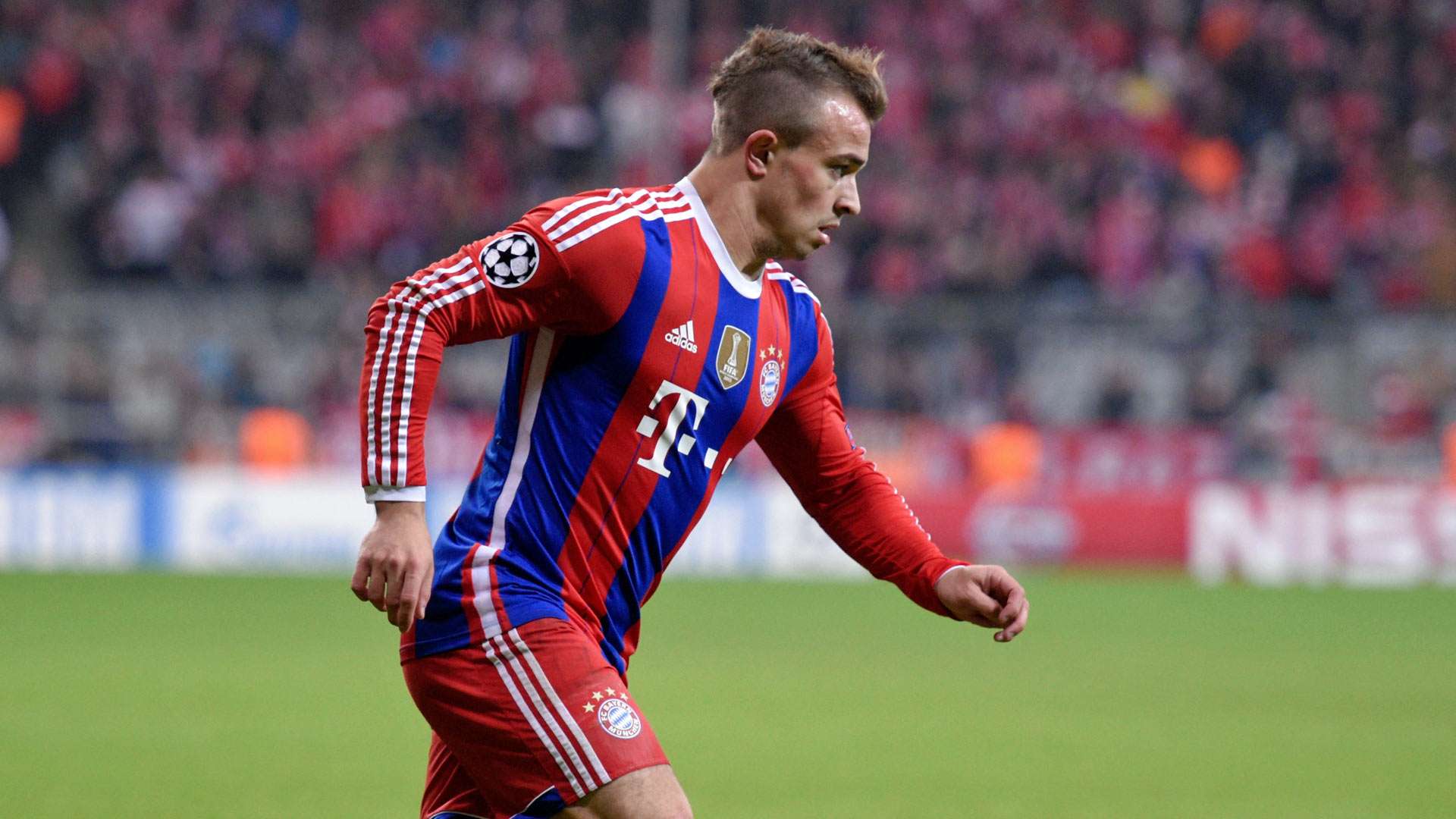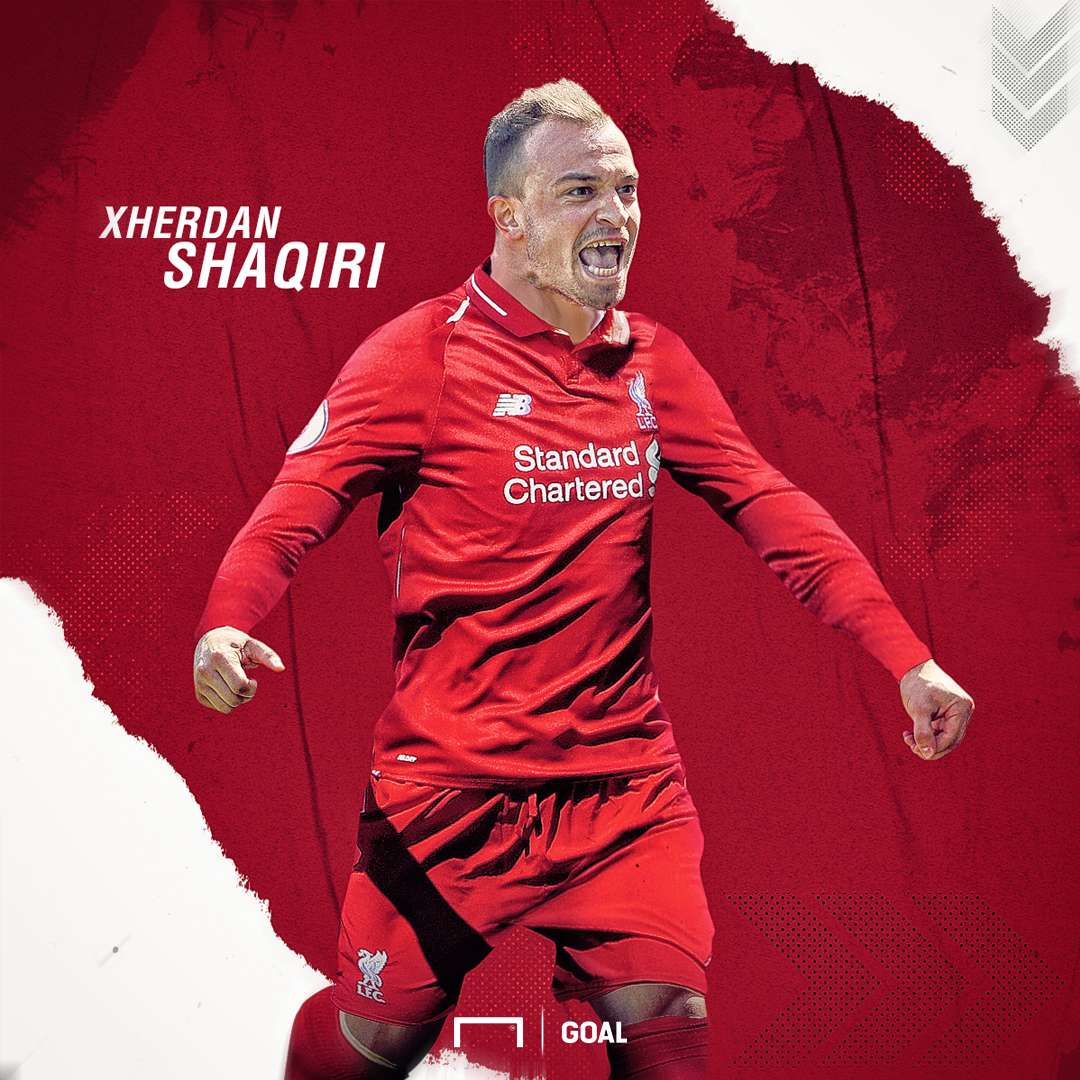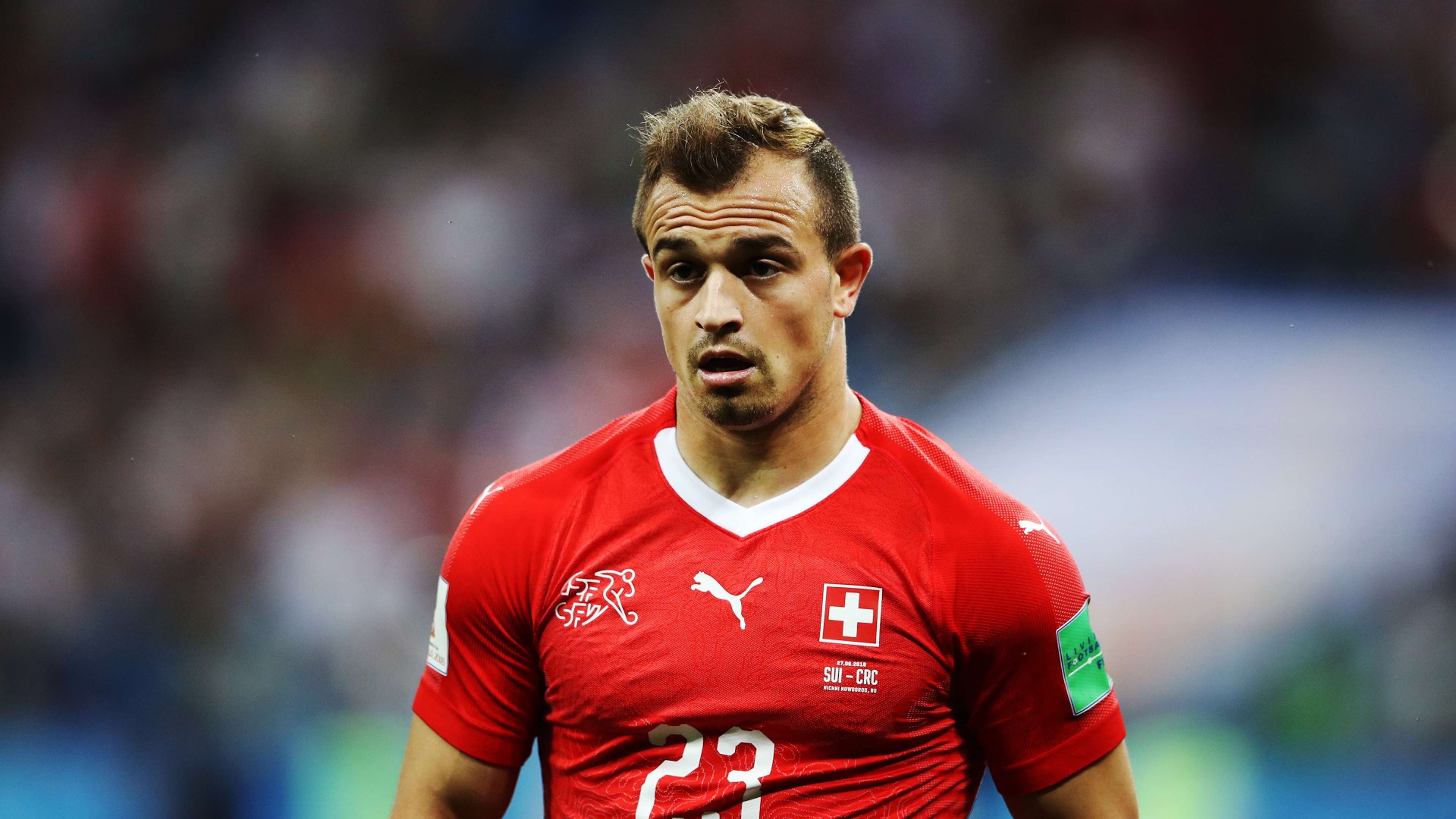The calves are coming to Anfield – and so is that left foot.
Xherdan Shaqiri is a Liverpool player, the Reds completing a £13 million ($17m) deal to make the Switzerland international their third major signing of the summer.
At a time when players of lesser pedigree are being transferred for more – think James Maddison at £25m, or the reports of Jack Grealish at a similar amount – it represents something of a bargain deal for Liverpool; a proven Premier League operator moving for around the same money as Bournemouth paid Sheffield United for David Brooks.
Shaqiri will bring plenty to Merseyside, of course. Jurgen Klopp was painfully aware of the need to add depth to his attacking options this summer, having seen his threadbare squad exposed towards the back end of last season.
Nowhere was that more evident than in the Champions League final, when Mohamed Salah’s early departure left the Reds fighting a losing battle against Real Madrid. Adam Lallana, asked to replace the injured Egyptian, was patently unable to fill that considerable void. The dynamic of the final, which Liverpool had started well, was changed in an instant.
Next Match
Salah, Sadio Mane and Roberto Firmino performed miracles last term, and not just in terms of their goals. Between them, they scored 91 times, but just as important as their quality was their durability.
Firmino and Salah were the club’s top two players in terms of games played, with 54 and 52 respectively. Mane played 44, with only Gini Wijnaldum and James Milner in between.
A reflection on the front three’s admirable mentality and fitness, for sure, but also an indictment of the lack of real, quality replacements at Klopp’s disposal. Liverpool’s back-up forwards, quite simply, were unable to deliver last term.
Dominic Solanke scored once in 27 outings (albeit mostly as a substitute), Danny Ings managed one in 14, while Lallana saw his campaign decimated by injury. His future, in any case, lies as a midfielder surely.
Solanke was an unused substitute in the Champions League final, while Ings was omitted from the squad entirely. Liverpool’s bench consisted of Lallana, the now-departed Emre Can, backup goalkeeper Simon Mignolet and a trio of defenders. Real Madrid brought on Gareth Bale and Marco Asensio.
Shaqiri’s signing is designed to help bridge that gap. Unlike Fabinho and Naby Keita, signed for a combined £90m earlier in the summer, he is unlikely to go straight into Klopp’s first XI, but he provides an experienced, proven option off the bench, as well as an opportunity for the manager to rotate his forwards.
The 26-year-old was one of the few to emerge from Stoke City’s relegation campaign with his reputation intact. His eight goals and nine assists were not enough to save the Potters, but represented his most productive campaign since 2011-12, when he was outgrowing Basel in his home country.
Klopp, of course, would cross paths with Shaqiri in Germany, though his two-and-a-half seasons at Bayern Munich would be largely frustrating. As would a seven-month spell at Inter Milan. Shaqiri arrived at Stoke, in August 2015, needing to rebuild his reputation.
 Getty Images
Getty Images
It seems he has done so – Klopp is understood to have pushed for this deal, with his recruitment team taking advantage of a clause in Shaqiri’s contract – but it remains to be seen whether he can handle his third crack at a big club, and how he will handle the transition from leading role to supporting cast.
Certainly, his quality will be welcome. He delivers an excellent set-piece and is capable of game-changing moments of magic off that gifted left foot. Crucially, too, he is well-adjusted to the pace and demands of English football. There will be no adaptation period in that regard.
Getting used to Liverpool’s style may take a while, mind. The likes of Alex Oxlade-Chamberlain and Andy Robertson needed time after signing last summer, while Klopp has already suggested that Fabinho may require a similar period of acclimatisation.
Shaqiri’s tendency, seen at Stoke and with Switzerland, is to stay wide, hugging the touchline before cutting in to cross or shoot – a traditional winger, in many ways.
Klopp, as we know, demands more from his wide players, asking them to play inside their full-backs, combining with the central striker and getting themselves into goalscoring positions inside the penalty area. With Salah and with Mane, we have seen how devastating that can be.
 Goal
Goal
So, Shaqiri is on board, a smart signing at a good price. The question now is: what, or rather who, follows?
Liverpool still want – and need – another creative attacking midfielder. Their deal for Lyon’s Nabil Fekir collapsed in June, and Goal understands it is unlikely to be revived this summer. But, as yet, no alternative target has emerged.
Klopp admires Christian Pulisic of Borussia Dortmund, Paris Saint-Germain's Julian Draxler and the Bayer Leverkusen pair Kai Havertz and Julian Brandt, among others, but there is radio silence at present. The Philippe Coutinho money, for now, remains unspent.
However, if the Reds are serious about going for the big prizes, it cannot stay that way. Last season showed how close Liverpool are to being a top-class team; can they capitalise on that momentum?
Fabinho and Keita are high-quality signings, designed to add dynamism and authority to their midfield. Shaqiri is a squad purchase, and potentially a good one. Now, they need more.
The situation surrounding the goalkeeper remains a major worry, with Loris Karius’ latest error at Tranmere doing little to calm fans’ fears. Reports that Danny Ward, the third-choice option last season, will be given the chance to be No.1 this term will reassure nobody.
Alisson Becker, the club’s preferred target for that position, looks like he won’t be arriving at Anfield. Can they find a suitable alternative, or can Ward – a player with two Premier League appearances to his name – step up and surprise everyone?
And with the clock ticking, can Klopp, Michael Edwards and Co. pull a rabbit out of the hat in terms of a top-quality attacking midfielder? If they do, then get your money on Liverpool. They’ll be hard to stop.
If not, though, they may live to regret it.


